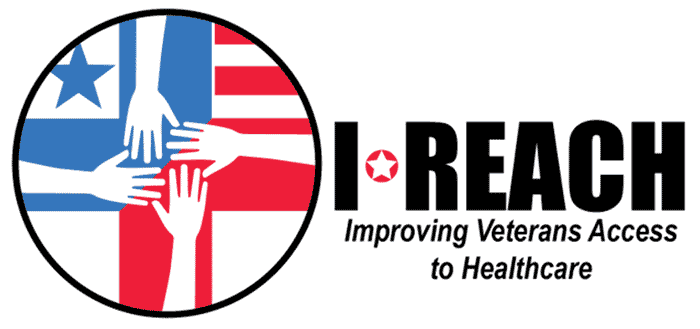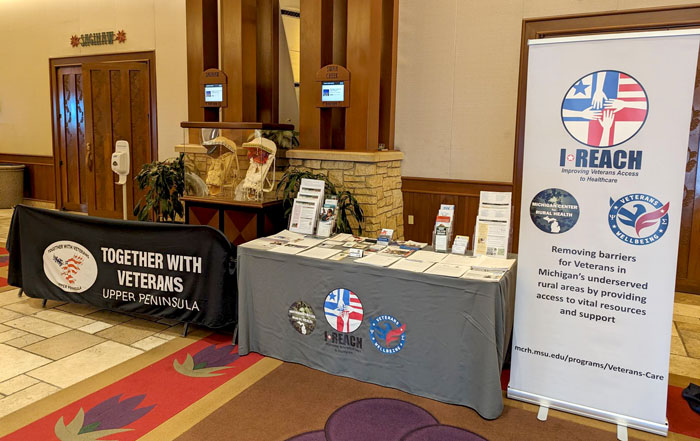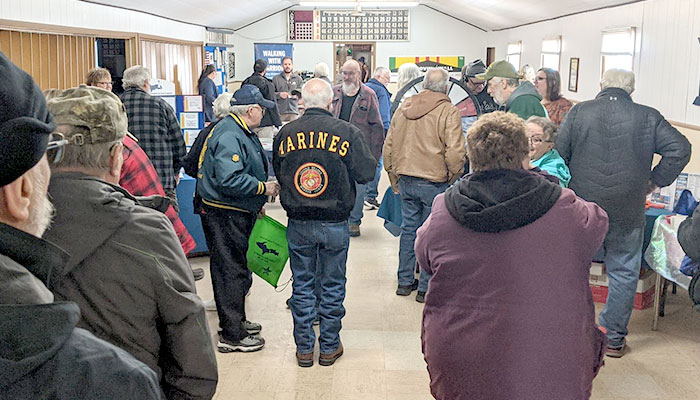I-REACH (Improving Rural Enrollment, Access, and Healthcare in Rural Veterans)
- Need: To improve veterans' access to healthcare in rural Michigan.
- Intervention: I-REACH connects veterans to healthcare services and other programs and helps healthcare facilities and providers become more veteran-friendly.
- Results: The program has received positive feedback from Veteran Service Officers in counties where there were outreach events.
Description
Over 30% of Michigan's veterans live in rural communities and may struggle to access healthcare, especially specialty care. In addition, these veterans may face barriers to internet access and transportation, and veterans may not feel that their healthcare providers understand their military experiences.
Michigan State University and the Michigan Center for Rural Health created the Improving Rural Enrollment, Access, and Healthcare in Rural Veterans (I-REACH) Project to improve veterans' access to care and to improve care coordination.

I-REACH focuses on the 15 counties in the Upper Peninsula and 11 counties in the northeastern Lower Peninsula. This program is funded through a 2022 Federal Office of Rural Health Policy (FORHP) Rural Veterans Health Access Program grant and received renewed 2025 funding.
Services offered
For healthcare facilities and providers:
I-REACH helps healthcare facilities and providers join the VA Community Care Network: non-VA community providers who serve veterans. I-REACH also encourages providers to join one of Michigan's Veterans Community Action Teams; these teams collaborate, share best practices, and network with other agencies.
I-REACH also collects data from healthcare facilities to determine how care and support for veterans can be improved.
For veterans and community members:
I-REACH helps veterans with healthcare enrollment, military service document retrieval, and technology issues as well as encourages veterans to share their military experiences (such as injuries or exposures to chemicals) with healthcare providers.
I-REACH also connects veterans to programs such as an Upper Peninsula program that offers fuel cards to veterans to assist with transportation costs.
I-REACH supports the suicide prevention programs called the Governor's Challenge and Together With Veterans and does community outreach at events for veterans, healthcare providers, and other community members. I-REACH also has a series of educational videos.
Results
The program has received positive feedback from Veteran Service Officers (VSOs) in counties where there were outreach events. One county reported that the workflow, including health and benefits applications and claims filing, tripled. A VSO in another county said, “I can't stress enough the great impact it had. Numbers keep growing as veterans spread the word.” In another county, at least 11 new members applied for the local American Legion as a result of the I-REACH event there.

For questions about research, you can reach out to principal investigator Dr. Emre Umucu at eumucu@utep.edu.
Challenges
Distance and weather can be barriers to conducting in-person events. Virtual planning meetings were conducted due to the distance between those attending the meetings.
Replication
Program coordinators created a community advisory board of veterans and caregivers, clinicians, and policymakers to identify veterans' needs and challenges. Partnerships and collaboration with existing programs and veteran advocates are also important.
Michigan Veterans Affairs Agency's Veteran Connector program recommends asking new patients or clients, “Have you or a member of your immediate household ever served in the military?” This wording is preferred over “Are you a veteran?” since some people who have served in the military do not view themselves as veterans.

Contact Information
Jim Yates, Project DirectorI-REACH
Yatesja1@msu.edu
Topics
Access
· Culture
· Veterans
States served
Michigan
Date added
November 14, 2023
Suggested citation: Rural Health Information Hub, 2025 . I-REACH (Improving Rural Enrollment, Access, and Healthcare in Rural Veterans) [online]. Rural Health Information Hub. Available at: https://www.ruralhealthinfo.org/project-examples/1127 [Accessed 16 February 2026]
Please contact the models and innovations contact directly for the most complete and current information about this program. Summaries of models and innovations are provided by RHIhub for your convenience. The programs described are not endorsed by RHIhub or by the Federal Office of Rural Health Policy. Each rural community should consider whether a particular project or approach is a good match for their community’s needs and capacity. While it is sometimes possible to adapt program components to match your resources, keep in mind that changes to the program design may impact results.
